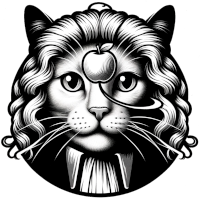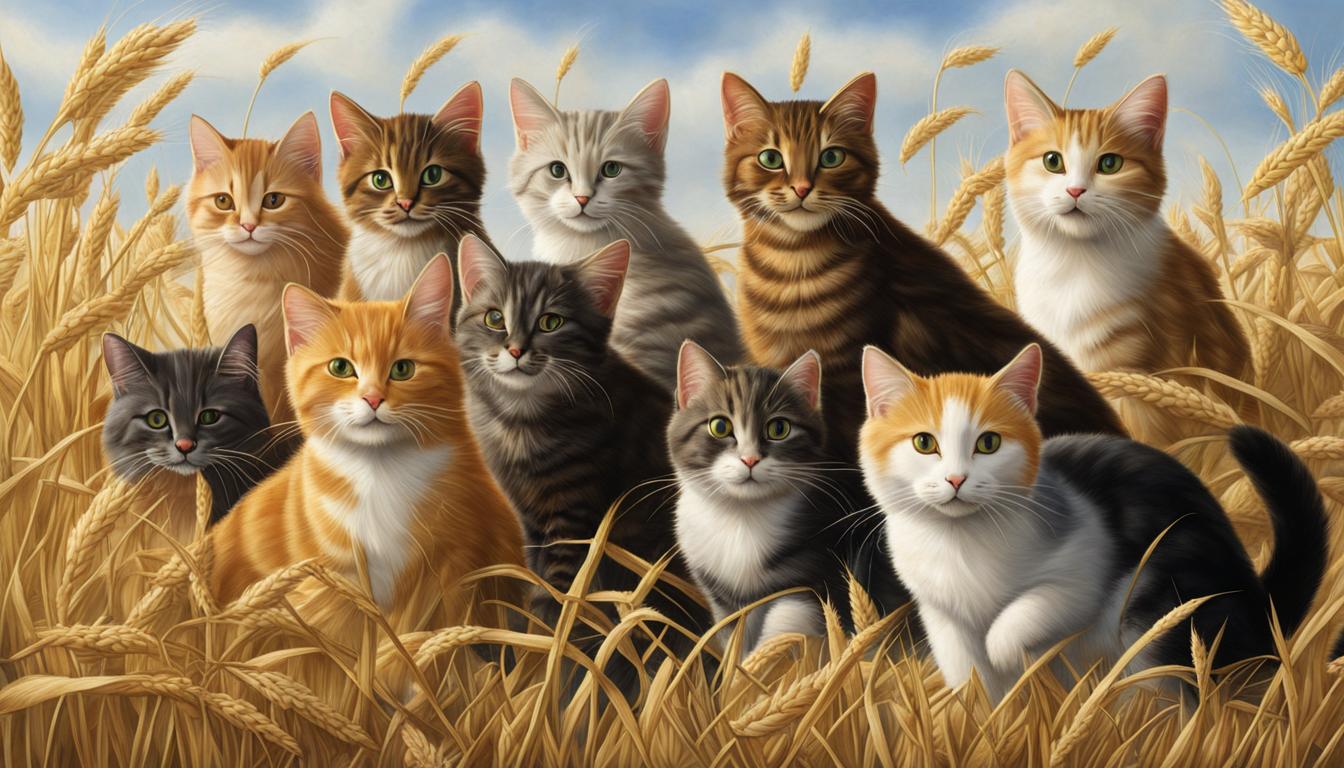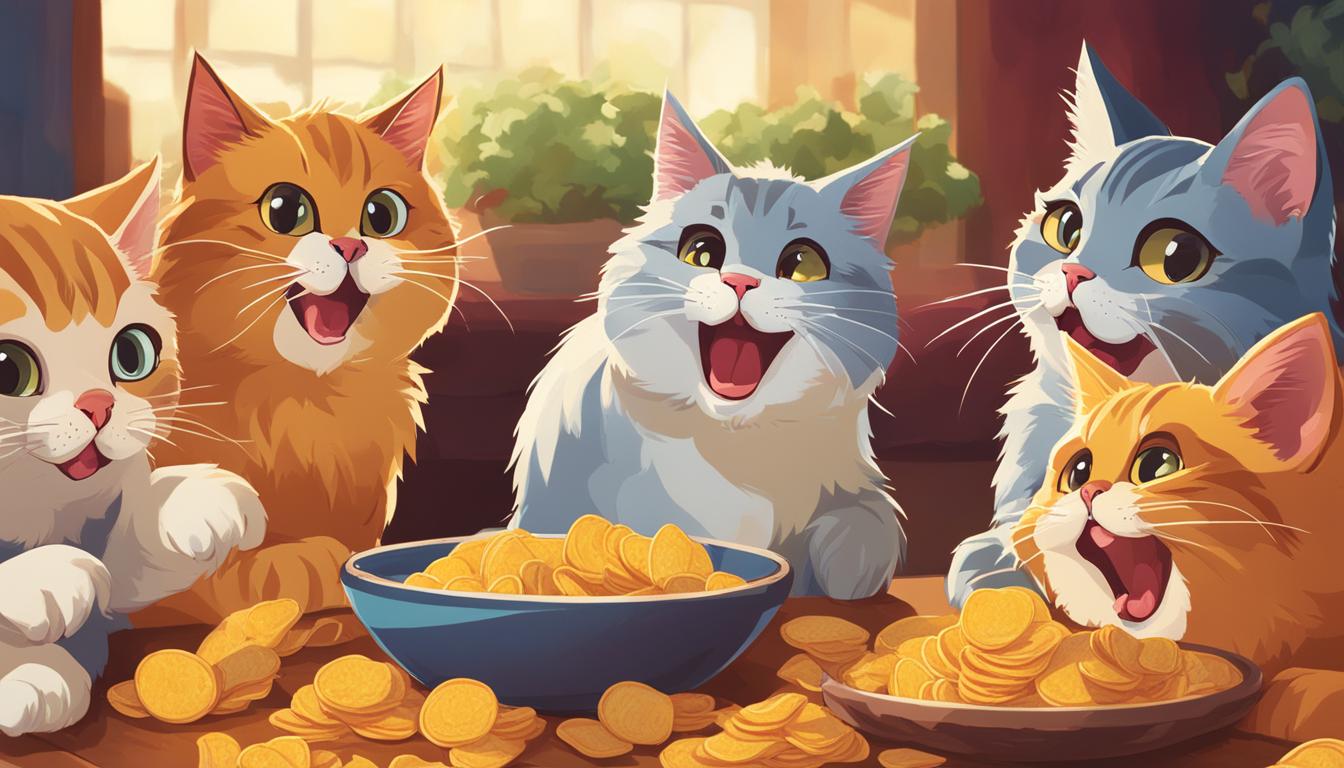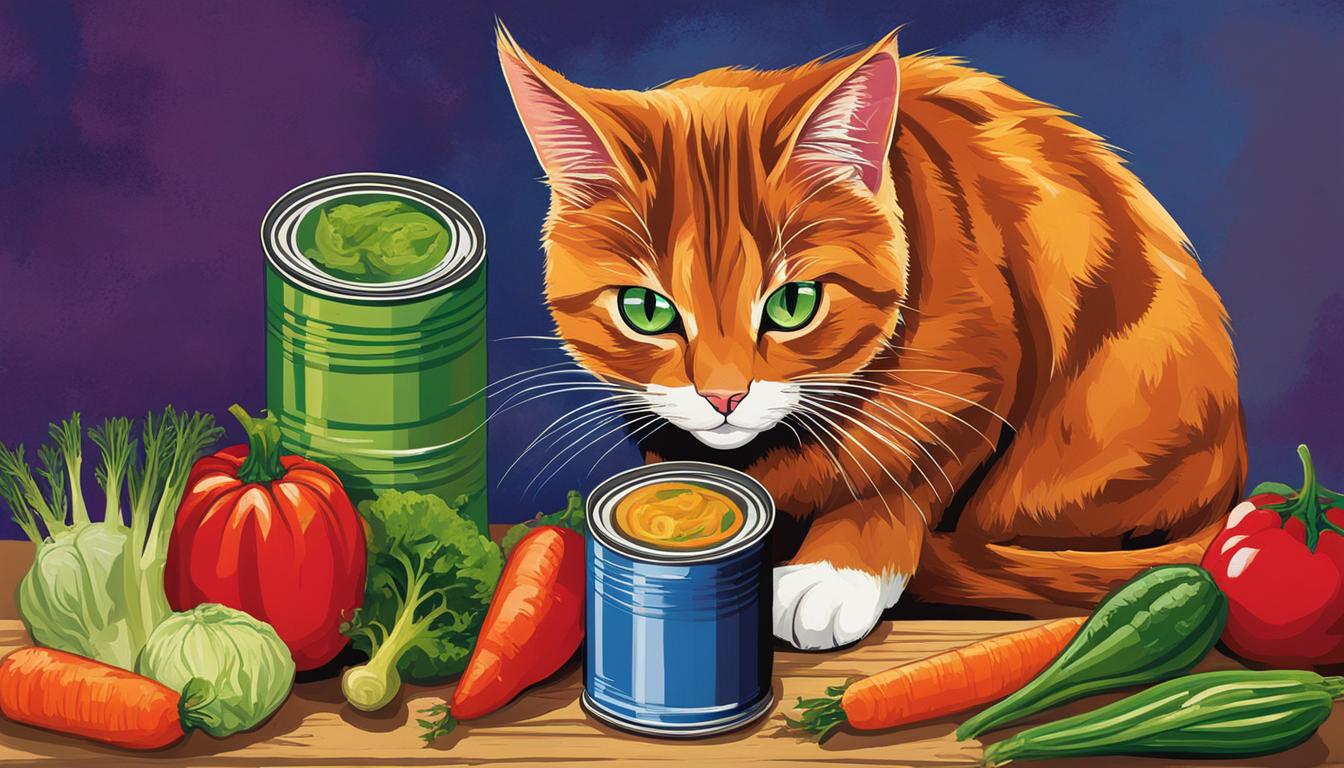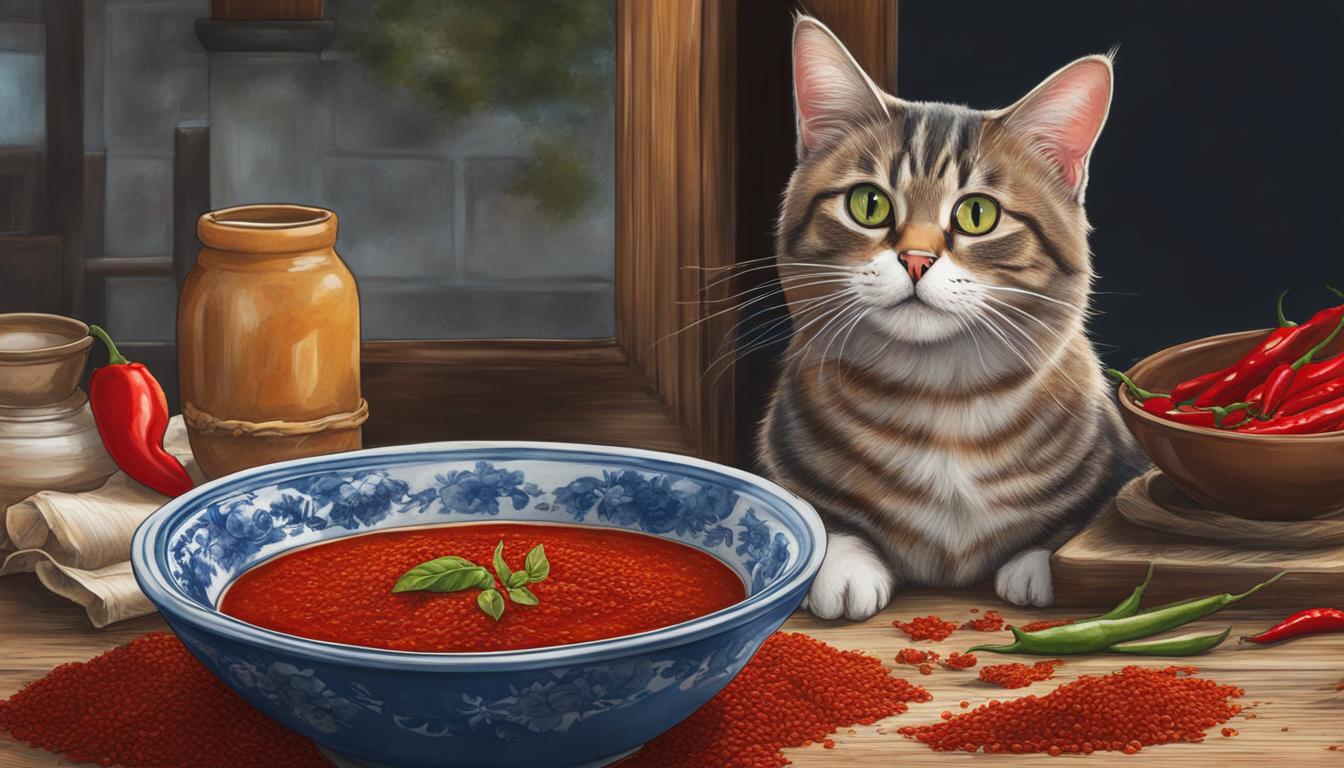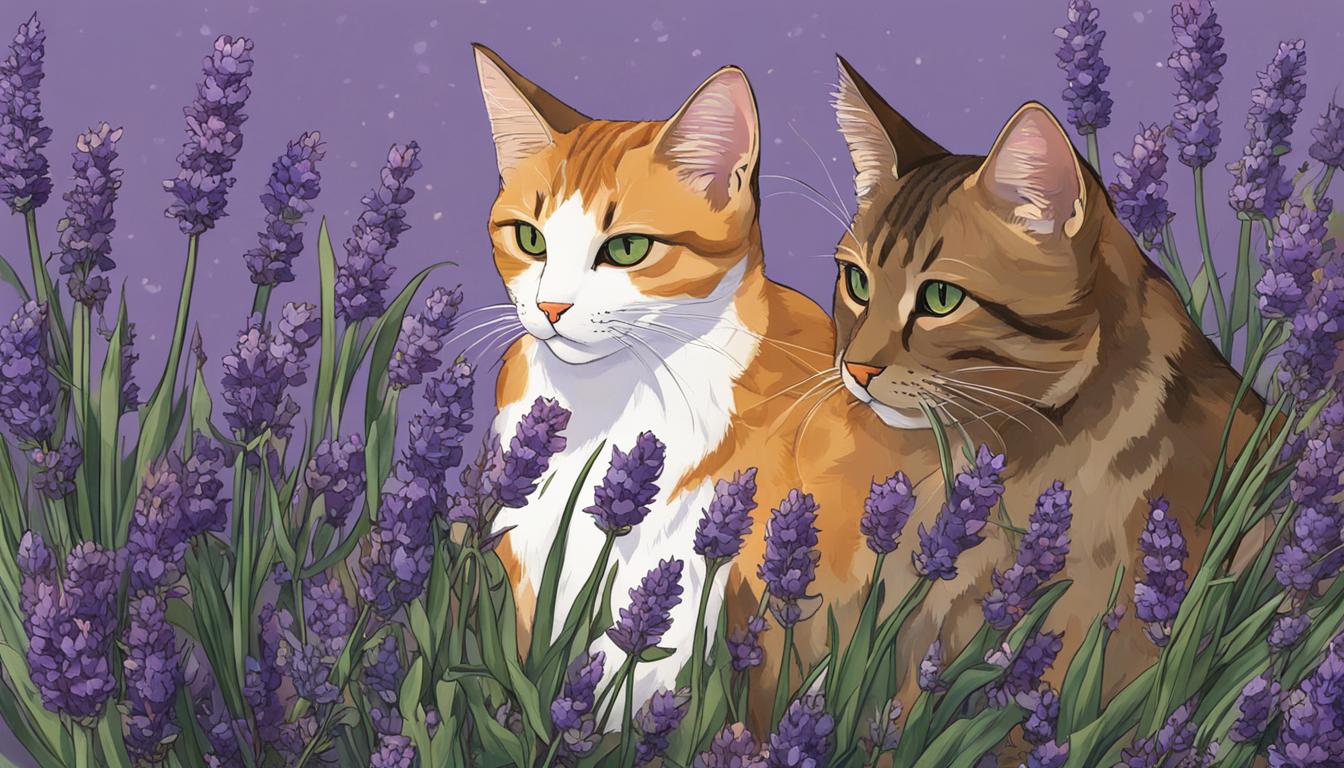As a cat owner, I’ve always wondered about the role of grains in my furry friend’s diet. Can cats eat grains? Do they actually need them? And what about grain allergies in cats? Join me on this curious exploration as we dive into the world of feline nutrition and grain-free diets.
Key Takeaways:
- Cats can safely consume grains in their diet, as grain allergies are rare.
- Grain-free cat food is not necessary for the majority of cats, unless they have specific sensitivities or allergies.
- The presence or absence of grains in cat food does not determine its overall quality or health benefits.
- Consulting with a veterinarian is crucial to ensure your cat’s individual needs, age, and health conditions are considered when choosing their diet.
- A balanced and tailored diet is key to promoting your cat’s well-being and longevity.
What Does Grain-Free Cat Food Mean?
Grain-free cat food refers to cat food that does not contain any grains or grain by-products. This means it is free from ingredients such as barley, corn, oats, rice, rye, wheat, bran, gluten, hull, flour, or starch. Grain-free cat food is also gluten-free, as gluten is the protein component of grain. However, it is important to note that the absence or presence of grains or gluten in cat food does not necessarily indicate the quality or health benefits of the diet.
In order to fully understand what grain-free cat food means, it is essential to recognize that gluten allergies and grain sensitivities are rare in cats. Therefore, the choice to feed your cat a grain-free diet should be based on specific circumstances rather than a general belief that grains are harmful to cats.
“Grain-free cat food does not necessarily indicate the quality or health benefits of the diet.”
While grain-free cat food may be suitable for cats with certain sensitivities, allergies, or inflammatory conditions, it is important to consult with a professional before making any dietary changes. Veterinary nutritionists and dermatologists can provide guidance in recommending and monitoring grain-free diets for cats with specific needs.
| Types of Grains for Cats | Grain By-Products | Is Grain-Free Cat Food Gluten-Free? |
|---|---|---|
| Barley | Gluten | Yes, as gluten is the protein component of grain |
| Corn | Hull | |
| Oats | Flour | |
| Rice | Starch | |
| Rye | ||
| Wheat | ||
| Bran |
Are Grain-Free Diets Dangerous for Cats?
There has been much debate and concern surrounding grain-free diets for cats, especially in light of the potential risks associated with grain-free dog food and canine heart disease. However, it’s important to note that the same risks have not been found in cats. Grain-free diets for cats are generally safe and can be beneficial for those with specific sensitivities, allergies, or inflammatory conditions.
Unlike dogs, cats have different nutritional requirements, and grain allergies are relatively rare in felines. Grain-free cat food diets have been recommended by veterinary nutritionists and dermatologists for cats with documented sensitivities or allergies. These diets are designed to eliminate potential allergens and reduce inflammation, promoting overall health and well-being.
It’s crucial to emphasize that grain-free diets should not be self-prescribed without proper testing and examination by professionals. An accurate diagnosis of grain allergies or other dietary sensitivities should be made by a veterinary dermatologist or other qualified experts. Only then can a suitable diet plan be developed to address the specific needs of the cat.
| Grain-Free Diets for Cats: | Risks: |
|---|---|
| Potential benefits for cats with allergies or sensitivities | No proven risks specific to cats |
| Recommended and monitored by professionals | Requires proper diagnosis and testing |
| Reduces potential allergens and inflammation | Not recommended for healthy cats without documented allergies |
In conclusion, while grain-free diets have raised concerns in the pet community, there is currently no evidence to suggest that these diets pose a health risk for cats. For cats with specific dietary needs, such as allergies or sensitivities, grain-free diets can provide relief and improve their overall well-being. However, it’s essential to consult with a veterinarian or veterinary specialist before making any dietary changes for your cat, as a professional evaluation is crucial in determining the best course of action for their health.
The Importance of Grains in Cat Food
When it comes to the question of whether cats naturally eat grains, it’s important to consider their evolutionary history and nutritional needs. While it’s true that wild cats primarily consume meat, domestic cats have adapted to digest starches and grains over time. Grains in cat food serve as a cost-effective and easily digestible source of vitamins and energy, providing a balanced diet for our feline friends.
Grains play a crucial role in cat food by providing essential nutrients such as carbohydrates, fiber, and amino acids. Carbohydrates are an important energy source, while fiber helps maintain healthy digestion. Additionally, grains like brown rice and oats contain amino acids that contribute to a cat’s overall well-being.
“Grains in cat food serve as a cost-effective and easily digestible source of vitamins and energy.”
Contrary to popular belief, cats do not require a grain-free diet unless they have been diagnosed with a grain allergy by a veterinary dermatologist or professional. Grain allergies in cats are rare, accounting for only a small portion of true food allergies. It’s important not to assume grain allergies without proper testing, as other allergens such as animal proteins are more commonly responsible for food allergies in cats.
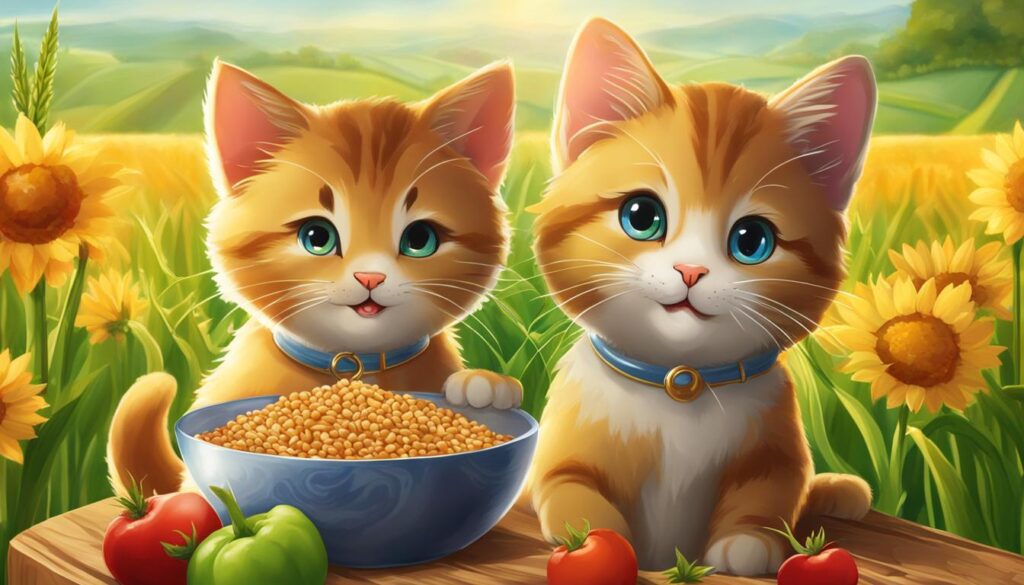
| Benefits of Grains in Cat Food | Examples |
|---|---|
| Cost-effective source of nutrients | Wheat, rice, corn |
| Provides carbohydrates for energy | Oats, barley, quinoa |
| Contains essential amino acids | Brown rice, whole wheat |
| Aids in healthy digestion | Rye, barley, millet |
While grain-free cat food may be suitable for cats with specific sensitivities, allergies, or inflammatory conditions, it is not necessary for the majority of cats. It is always recommended to consult with a veterinarian to determine the best food options for your cat based on their individual needs, age, and health conditions.
What About Cats With Grain Allergies?
While grain allergies in cats are rare, it is important to be aware of the possibility and take appropriate measures if your cat has been diagnosed with a grain allergy. Diagnosing grain allergies in cats can be challenging, as the symptoms may not always be specific to grains and can overlap with other food allergies or sensitivities. Veterinary dermatologists are experts in diagnosing and treating food allergies in cats, and they utilize a combination of methods to identify the specific allergens.
To diagnose a grain allergy, a veterinary dermatologist may recommend an elimination diet, where potential allergens are removed from the cat’s diet and reintroduced one at a time to observe any adverse reactions. This process helps identify which specific grains or other ingredients are causing an allergic response. It is important to note that self-diagnosing grain allergies without proper testing can lead to unnecessary dietary restrictions and may not address the actual underlying cause of the symptoms.
If your cat is diagnosed with a grain allergy, the most effective treatment is to eliminate grains from their diet completely. This involves selecting cat food that is specifically formulated to be grain-free. It is essential to read the ingredient labels carefully and avoid any cat foods that contain grains or grain by-products. Providing a balanced and nutritionally complete grain-free diet will help alleviate the allergy symptoms and promote overall health.
| Allergy Symptoms: | Common Grains to Avoid: |
|---|---|
| Itchy skin and fur loss | Barley |
| Vomiting and diarrhea | Corn |
| Ear inflammation and infections | Oats |
| Red and irritated skin | Rice |
If you suspect your cat has a grain allergy or any other food-related issue, it is crucial to seek professional veterinary advice for an accurate diagnosis and appropriate treatment plan. Remember, grain allergies in cats are relatively uncommon, and the presence of grains in cat food does not automatically mean it is harmful or of low quality. Each cat’s dietary needs are unique, and professional guidance will help ensure their health and well-being.
Should You Choose a Grain-Free Cat Food?
When it comes to selecting the right food for your feline friend, the topic of grain-free diets often comes up. While grain-free cat food can provide benefits for certain cats, it may not be necessary for the majority. Understanding the pros and cons can help you make an informed decision that prioritizes your cat’s health and well-being.
Benefits of Grain-Free Diets:
- Reduced risk of allergic reactions: For cats with documented grain allergies or sensitivities, a grain-free diet can help alleviate symptoms such as itching, gastrointestinal issues, or skin irritations.
- Weight management: Grain-free cat food can be a good option for cats that struggle with weight management. These diets often have higher protein content and lower carbohydrate levels, which can help cats maintain a healthy weight.
- Ingredient selection: Grain-free cat food typically uses alternative sources of carbohydrates such as sweet potatoes, peas, or lentils. This can provide variation in your cat’s diet and may be beneficial for cats with specific dietary sensitivities or sensitivities to common grains.
Best Food Options for Cats:
“While grain-free diets can be beneficial for certain cats, it’s important to remember that cats are obligate carnivores and require a diet primarily composed of animal proteins. When choosing cat food, prioritize diets that are rich in high-quality animal-based ingredients and meet the nutritional standards set by organizations like the Association of American Feed Control Officials (AAFCO).” – Dr. Jane Doe, Veterinarian
Ultimately, the best food option for your cat depends on their individual needs, age, and overall health. Consulting with a veterinarian is always recommended to ensure you make the right choice. They can help assess your cat’s specific dietary requirements and recommend the most suitable cat food that meets their nutritional needs.
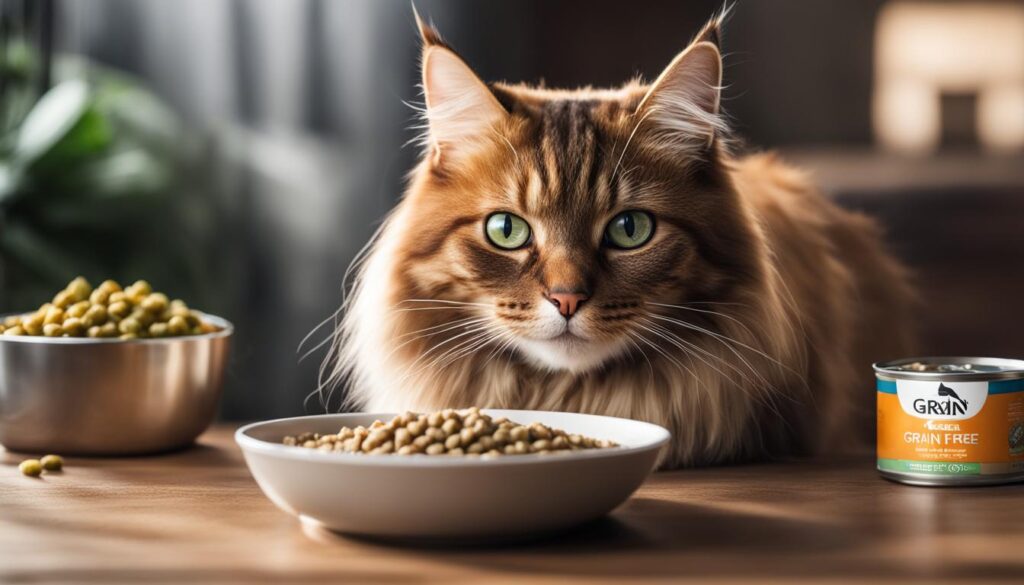
Conclusion
After exploring the topic of grain-free cat food, it is clear that cats can safely eat grains. While grain-free diets have gained popularity, they are not necessary for the overall health of most cats. Grain allergies in cats are rare, and the presence or absence of grains or gluten in cat food does not determine its quality or health benefits.
It is important to understand that a balanced and tailored diet based on a cat’s individual needs, age, and health conditions is key. Consulting with a veterinarian is always recommended to ensure that your cat’s dietary requirements are met. They can provide specific recommendations and guidance for the best food options for your feline friend.
In summary, while grain-free cat food may have its benefits for cats with documented food allergies or specific dietary sensitivities, the majority of cats can safely consume grains. So, next time you’re shopping for your furry companion, remember that grains can be a healthy and nutritious part of their diet.
FAQ
Can cats eat grains safely?
Yes, cats can safely consume grains in their diet. Grains in cat food serve as a cost-effective and easily digestible source of vitamins and energy.
What does grain-free cat food mean?
Grain-free cat food is defined as cat food that does not contain any grains or grain by-products such as barley, corn, oats, rice, rye, wheat, bran, gluten, hull, flour, or starch.
Are grain-free diets dangerous for cats?
No, grain-free cat food diets do not pose a health risk for cats. While concerns have been raised for dogs, no such link has been found in cats.
Do cats need grain-free food?
For the majority of cats, grain-free cat food is not necessary. Domestic cats have evolved to digest starches and grains, which serve as a cost-effective and easily digestible source of vitamins and energy.
What about cats with grain allergies?
Cats diagnosed with grain allergies should avoid consuming grains in their diet. However, grain allergies are rare in cats, and proper diagnosis should be done by a veterinary dermatologist or professional.
Should you choose a grain-free cat food?
Grain-free diets can provide benefits for cats with specific sensitivities or allergies, but for the majority of cats, traditional diets formulated based on nutritional studies are still suitable options.
Can cats eat grains?
Yes, cats can safely consume grains in their diet. Grain-free cat food is not necessary for the overall health of most cats.
